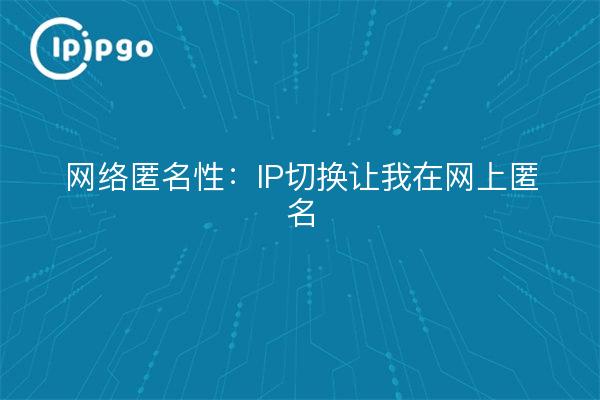
What is internet anonymity
Network anonymity refers to hiding one's true identity and location information on the Internet, making the user's behavior and activities on the network less likely to be tracked and identified by others. One of the keys to achieving network anonymity is through IP switching, i.e., using a different IP address to hide the real IP and achieve anonymity on the Internet.
Principle of IP switching
IP switching is accomplished through the use of a proxy server. The proxy server acts as a middleman, forwarding the user's request to the target server and then returning the target server's response to the user. In this process, the proxy server replaces the user's real IP address with its own IP address, thus realizing IP address switching. Users can enhance their network anonymity by using different proxy servers for multiple IP switching.
Below is a simple Python sample code that demonstrates how to switch IP addresses by using a proxy server:
import requests
# Setting up a proxy server
proxy = {
"http": "http://your_proxy_address",
"https": "https://your_proxy_address"
}
# Initiates HTTP request with proxy
response = requests.get("http://www.example.com", proxies=proxy)
print(response.text)
Application of IP switching
IP switching can help users to achieve anonymity on the Internet and protect personal privacy and security. The use of IP switching can play an important role in some scenarios that need to protect personal identity, such as crawling website data and avoiding being tracked. At the same time, IP switching is also used by some malicious users to carry out cyberattacks and illegal activities, so when using IP switching, users need to comply with laws and regulations, and should not use it for illegal and improper purposes.
Network anonymity can be effectively enhanced through IP switching, helping users to protect their privacy and security online. However, users need to pay attention to legal compliance when using IP switching to avoid abuse.








